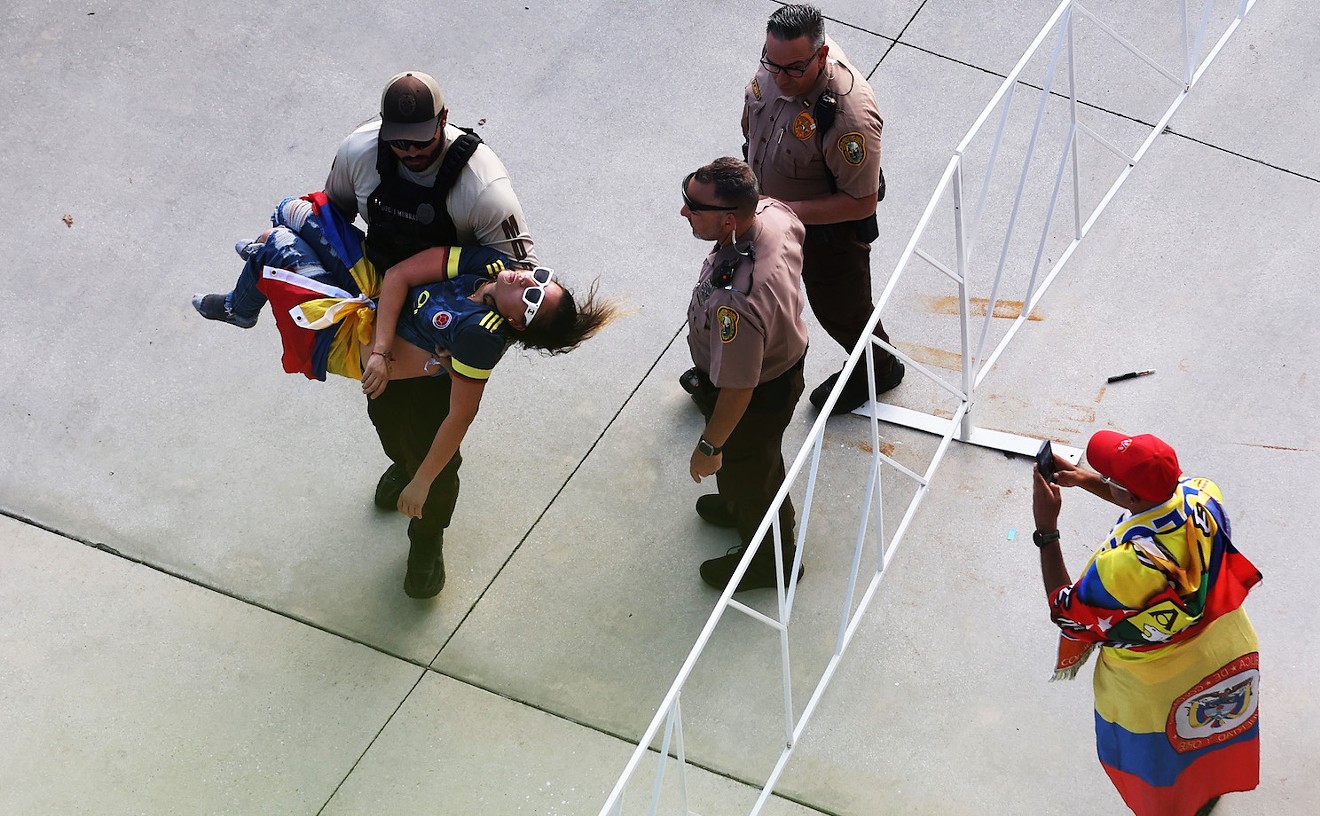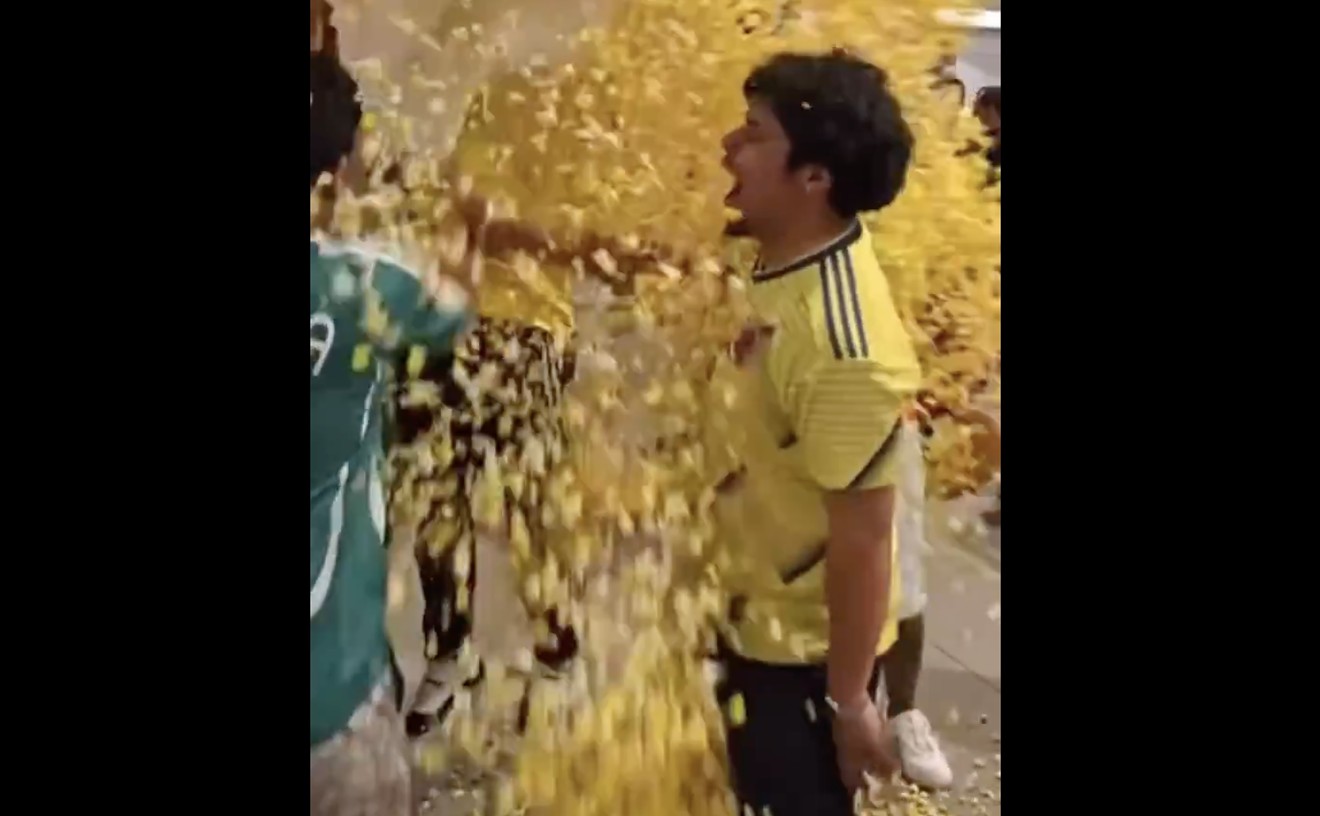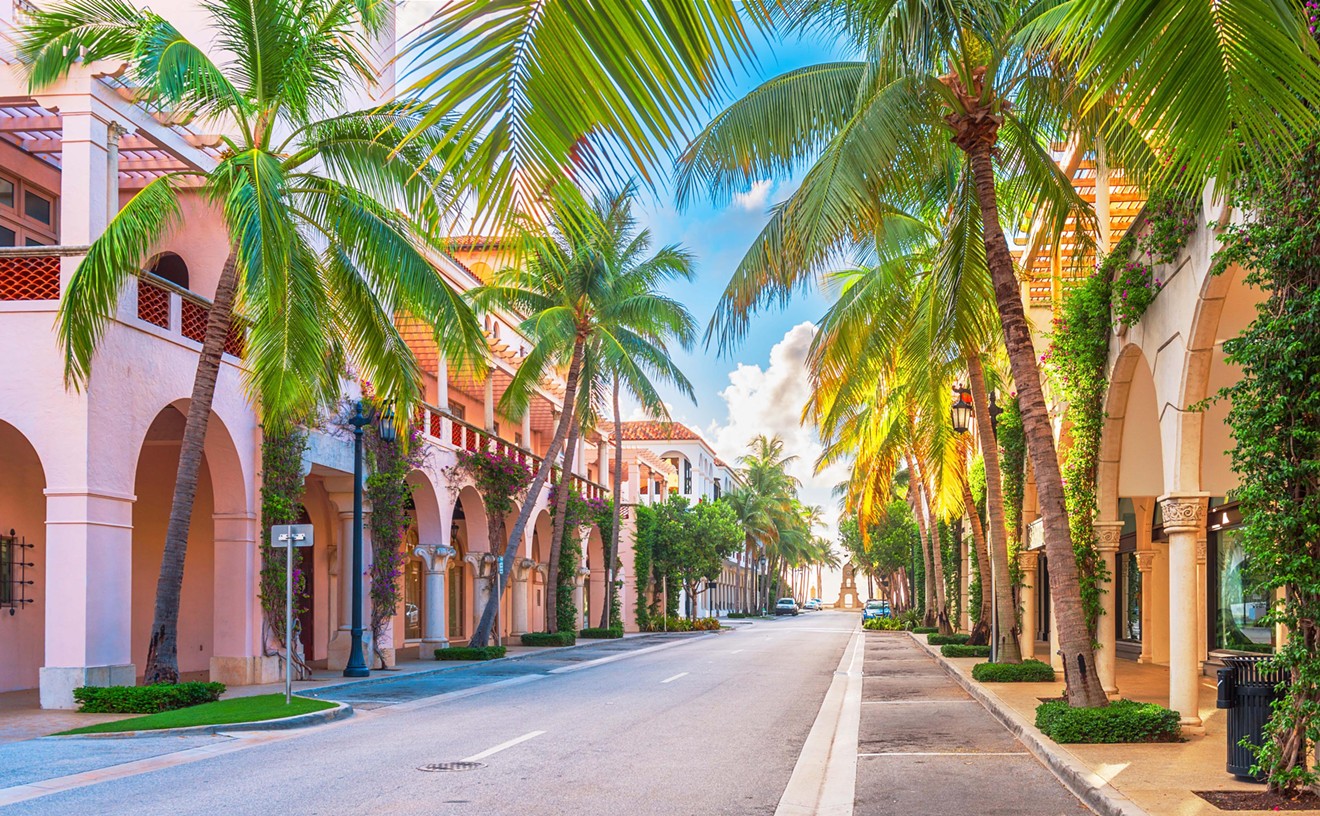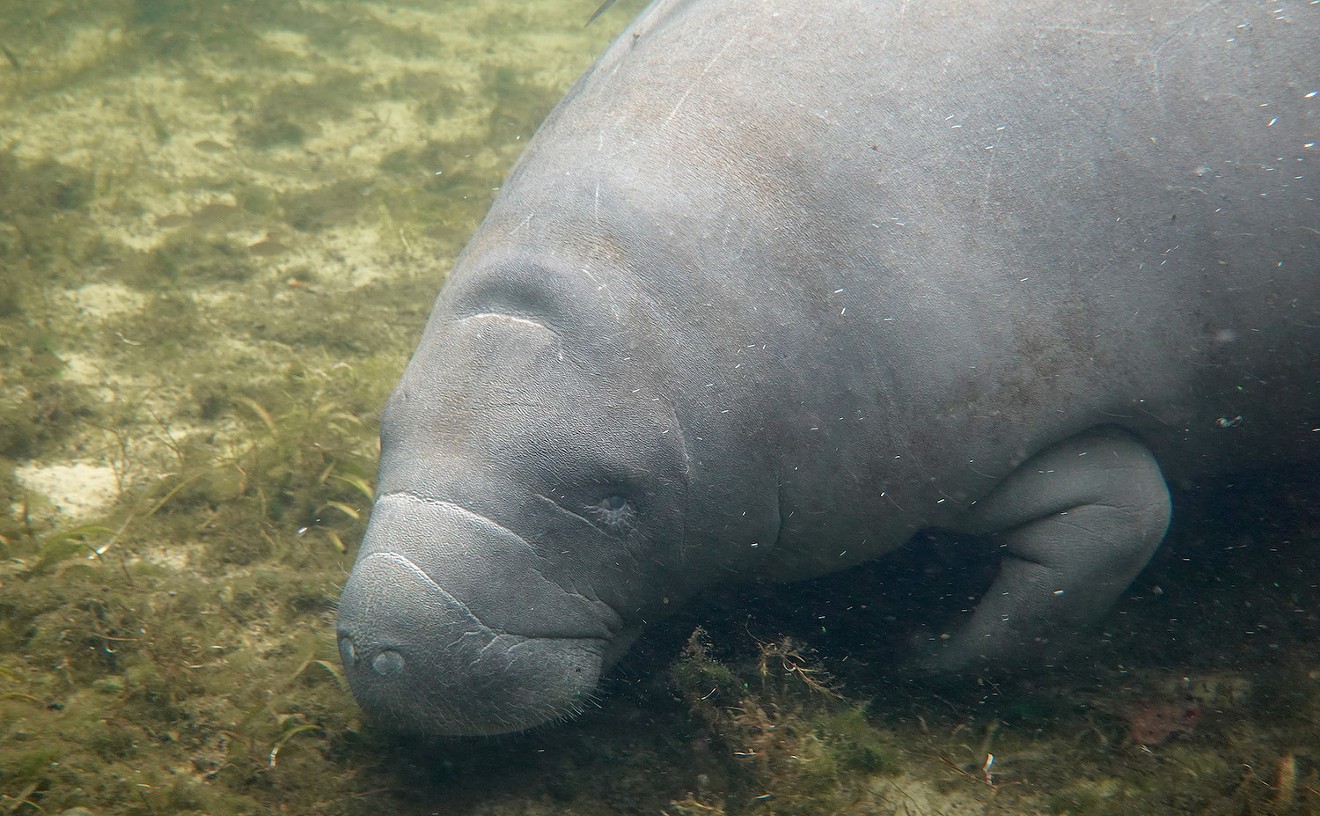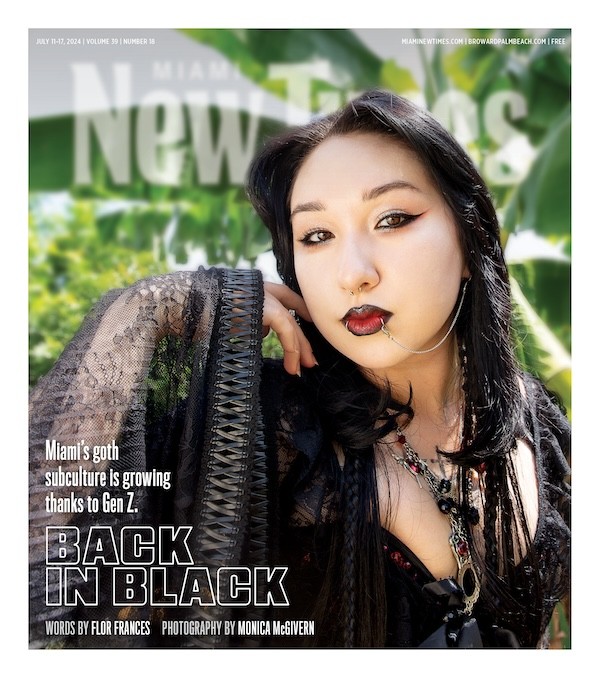As epitaphs go, the McCain rally Sunday night/Monday morning in Coral Gables is as good as any for Florida. It was a midnight party of Cuban music and Cuban-American politicians at the University of Miami's basketball stadium that was meant to stoke the fires of the hard-core exile population here, a reliable part of the base. The gathering was feisty, yes, with people wearing "Joe" stickers in plumbing solidarity, and waving signs reading "No Socialismo, Wake Up!" And true, it was loud, with Cuban musician Albita pumping out song after song while the crowd waited for McCain. But organizers failed to pack a 7,000-seat stadium, even though their man, the Maverick himself, would be speaking. Outside the stadium all was quiet; the streets were empty, and no one was milling about except a few bored cops.
In other words, it was two nights before the election and the Republicans were having trouble drawing out the faithful in impressive numbers. You could drag that metaphor across Florida.
By contrast, when Obama visited Miami's Bicentennial Park in early October, 30,000 people crammed in to see him, and thousands more who couldn't get in waited outside. That enthusiasm wasn't lost on Republicans. Gary, a 59-year-old attorney, summed up the mood of his party as he stood sweating in line at the Immanuel Lutheran Church on Brickell Tuesday waiting to vote. "I'm hoping that McCain will win, but I don't think so," he said, a rumpled suit jacket slung over his shoulder.
Conventional political wisdom carves Florida up thusly: the North (which is culturally part of the Southern United States) votes Republican. The South (considered North in sensibility with its snow-bird retirees, gay-friendly urban enclaves, and young entrepreneurs) goes to the Democrats. The swath in the middle, including Tampa and Orlando, is up for grabs, and whoever wins it, takes the state.
Because of its vast resources, the Obama campaign was able to tweak this formula. It opened 50 offices as far north as Pensacola, near the Alabama border, and as far south as Key West. It hired 400 staffers and marshaled 160,000 volunteers. That meant canvassers could take the fight to the Republicans' doorstep -- hitting up tiny towns throughout the panhandle, such as Apalachicola, where Obama scored points backing the locals in a water-use conflict involving neighboring Georgia.
In the past, the Republicans controlled the ground war here, with an army of volunteers turning out the vote throughout the I-4 corridor cutting through Central Florida and twice helping turn the state red, in 2004 by half a percentage point, and in 2000 by, well, not much or not at all depending who you believe won it here.
Obama also zeroed in on the state's Hispanics. He spent $20 million nationally on ads in Spanish-language media. In Florida they hoped to counter the impact of South Florida's traditionally Republican Cubans by reaching out to the numerous new immigrants from South and Central America.
"Miami is the front line," one Obama staffer explained. "If you can improve the margin with Hispanics in Miami, it bodes well for the rest of the state." A couple of factors helped, he said. The Cubans are no longer the majority of Hispanics here, and the Colombians, Nicaraguans, etc., aren't motivated by the same core issues. "We felt like the Hispanic vote was really in play," the staffer said. "The only concern with Barack was whether people could get over his race. But the economic crisis inordinately affects Hispanics."
At first it didn't look like McCain was vigorously concentrating on Florida. Maybe he was confident it would fall as it had the past two elections; more likely the financial underdog was keeping his powder dry for when it counted most. After all, he led in polls here by double digits through the spring until July, according to an average of the polls on the website Real Clear Politics, when Obama pulled even for a bit, most likely the result of relentless advertising and a post-nomination uptick. Even then the Democrat's gains were sporadic. It wasn't until the financial meltdown in late September that Obama took his lead in most polls, helped along by Sarah Palin's "sagging favorability," as Quinnipiac University put it on September 29. After that, Obama was able to hold onto a three to five percent lead.
Then McCain began advertising heavily and touring the state with high-profile surrogates such as Joe Lieberman, or his VP Sarah Palin. Almost immediately the poll numbers closed to within a 1.5 to 3 percentage point difference. It shows how every ounce of the monumental effort the Obama campaign put into Florida was necessary, and how easily those gains could evaporate.
But the GOP couldn't pull ahead. By then a busted economy was taking its toll on the state. When the Agency for Workforce Innovation announced October 17 that statewide unemployment was 6.6 percent, with pockets such as Hendry County logging in at 14 percent and Flagler County at 10 percent, it was a death knell for the man who declared that the foundations of our economy are strong. For many undecideds, the economy trumped the culture wars and the race issue.
And with the defeat of the three Democratic challengers to the hard-line exile rightist triumvirate incumbents in the South Florida congressional races (Joe Garcia, Raul Martinez, and Annette Taddeo versus the Diaz-Balart brothers and Ileana Ros-Lehtinen), and the passage of a statewide ban on gay marriage, Florida's liberals have only so much to be happy about; the formerly red state turned blue only after it bled red.





